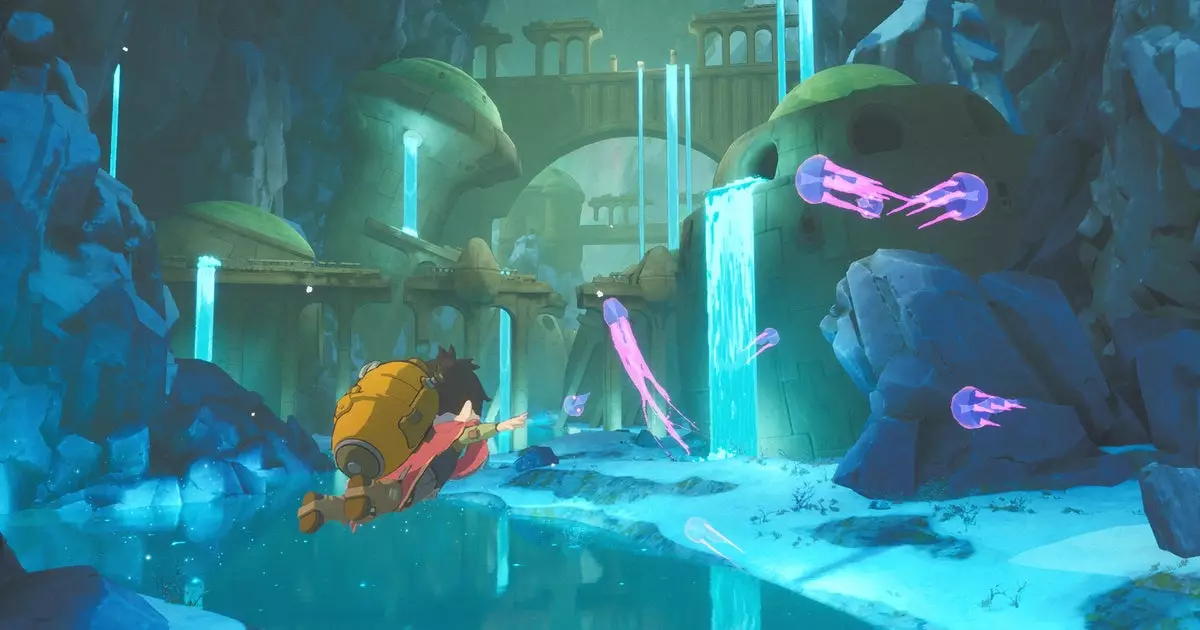In the realm of video games, certain stylistic influences can become genres unto themselves, much like “Aliens” or “Blade Runner”. One such influence is the rich, visually stunning legacy of Studio Ghibli, which has shaped the aesthetic of numerous titles. Newly released game Europa is a compelling representation of this genre, boasting enchanting landscapes and graceful movement mechanics that evoke the whimsy of Ghibli films. With its vibrant skies, lively greenery, and a sense of soaring freedom, Europa offers players a chance to immerse themselves in a dream-like narrative that feels familiar yet freshly engaging.
Set in a beautifully crafted environment, Europa invites players to embark on a 3-4 hour journey characterized by exploration, puzzles, and intrigue. The game’s protagonist, Zee, an android endowed with the capacity for flight, showcases an intriguing gameplay element centered on movement upgrades. Players will experience a rewarding physicality as they navigate through sky islands, employing a jetpack for boosts and ultimately achieving the power to fly freely. This focus on exploration and agile movement is reminiscent of classic adventure games while promising fresh challenges for modern gamers.
At the heart of Europa’s creation is Helder Pinto, who developed this project as a passion endeavor alongside his work on high-profile titles such as Overwatch. The result is an impressive blend of experience and artistry, with graphic landscapes that invite players to delve into their whims and secrets. Most notably, while many games draw inspiration from Ghibli’s iconic designs, they often miss the emotional depth and narrative weight that define these films. Readers may recognize this phenomenon in titles that pay homage to Ghibli but fail to capture its spirit fully. The hope with Europa lies in its ability to breathe fresh life into these time-honored tropes.
While the immersive visual storytelling and enchanting game mechanics might indicate a promising adventure, players often find themselves grappling with a sense of artistic déjà vu. For instance, many have enjoyed Ni no Kuni: Wrath of the White Witch, even as it borders on a nostalgic mimicry of Ghibli’s style. The critique extends to how often these games can evoke a “Ready Player Miyazaki” sensation, presenting a collection of themes without genuine emotional engagement. Does Europa make strides to differentiate itself in this landscape, or does it exist merely as another homage?
Ultimately, the verdict remains to be seen as players experience Europa for themselves. While the demo may no longer be accessible, the full game is competitively priced, making it an inviting choice for those yearning for a brief yet enchanting escape. Whether Europa succeeds in transcending the clichés or falls prey to them will determine its place within the growing genre of Ghibli-inspired video games. As the community waits to uncover just how inventive this title can be, fans of whimsical storytelling and lush landscapes have a new journey to contemplate.

